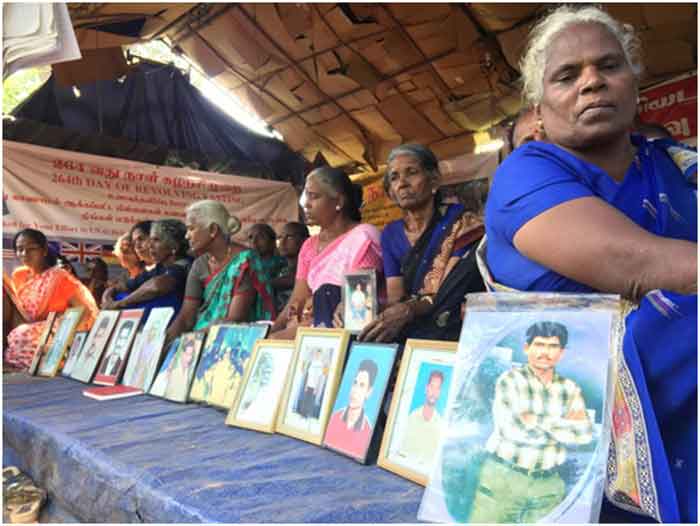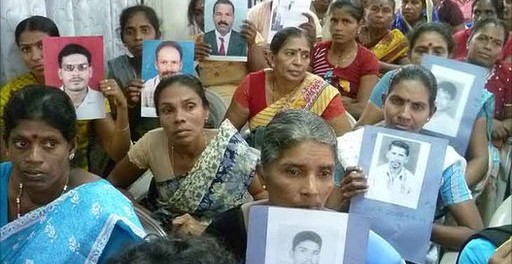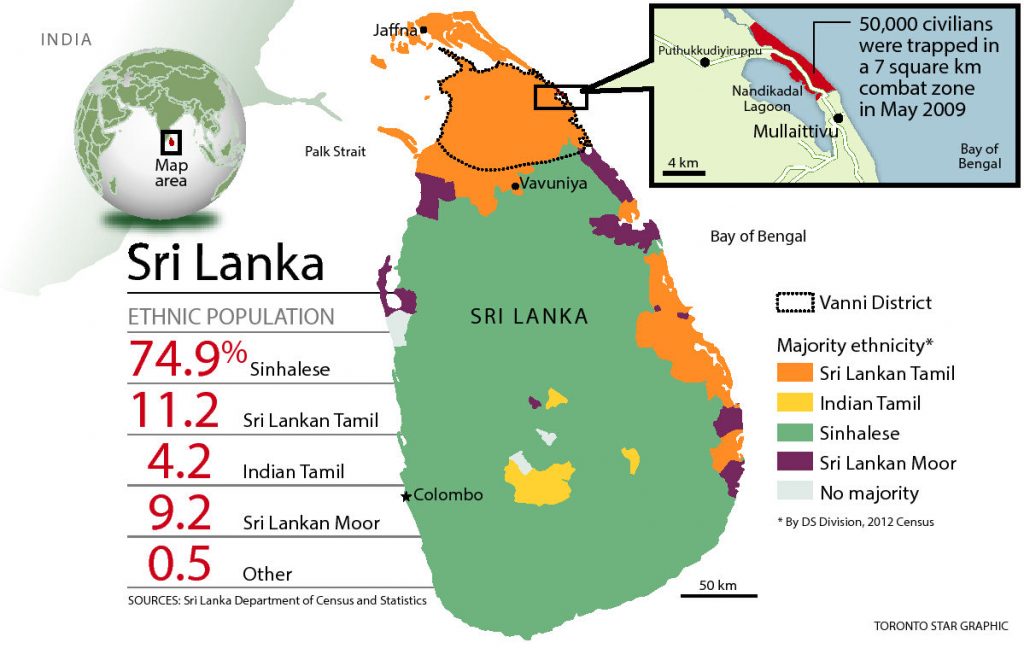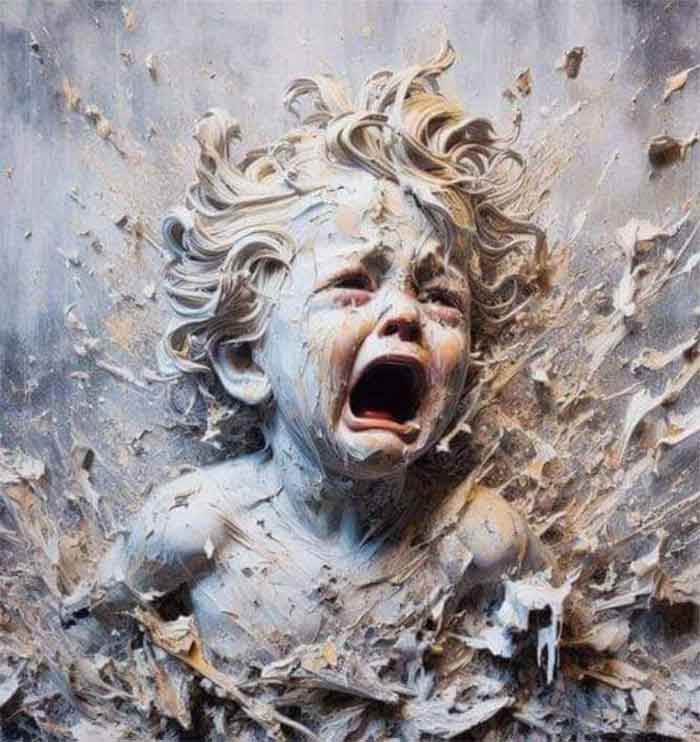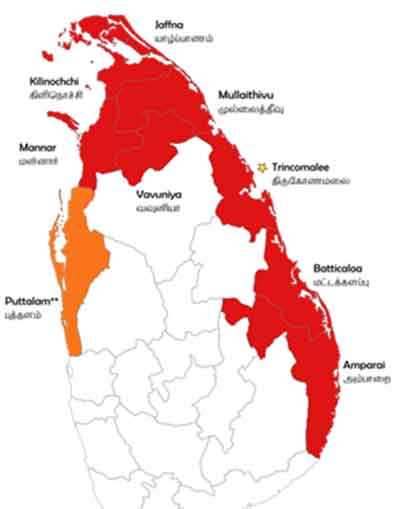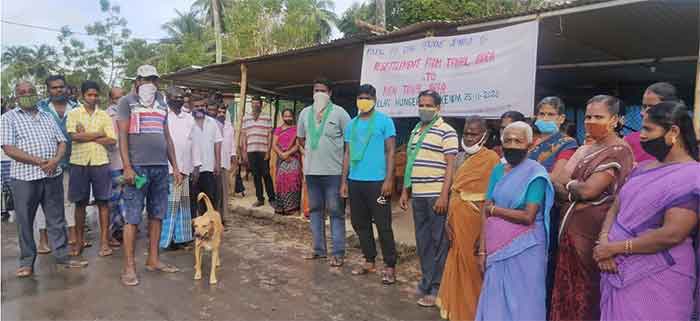
Indian origin Srilankan Tamil community, who were repatriated and settled in a remote Katchal Island in Andaman and Nicobar, are on relay hunger strike for the past one month, demanding proper resettlement and basic livelihood facilities, which were denied to them for the past five decades.
Around 5.25 Lakh Indian-origin Srilankan Tamils, who were repatriated to India based on Srimavo-Shastri Pact in 1964, were still yet to find a stable living even after five decades of forced migration. The Indian Origin Tamil population in Srilanka went as migrant labourers from southern Tamilnadu during British period in 19th century to support the British plantation economy in Srilanka. After the decline of Coffee plantation due to blight, they shifted to tea and rubber plantation. The 1948 Ceylon Citizenship Act gave citizenship only to those who could prove their birth in Srilanka before 15th August 1948 and in addition prove that his father or paternal grandfather was born in Srilanka. The rigorous provisions of the Act gave citizenship only to 17 per cent of Indian Origin Tamils, making a majority stateless. The Srimavo-Shastri Pact in 1964 and Srimavo – Indira Gandhi Pact in 1974 repatriated majority of them to India. Those repatriated were settled in various plantations in Tamilnadu, Karnataka, Kerala, Andhra Pradesh and Andaman and Nicobar Islands.
One such settlement was made in a remote Katchal Island in Nicobar, along with the prevailing indigenous Nicobari tribes. The original 47 families, who were settled there, were employed in the rubber plantation, which slowly became a failed project in Katchal. Now, with around 240 families with more than 1000 members, they are finding difficult to survive in this remote tribal island. The ingenuous decision of the government to settle them in tribal reserve area without forethought has landed them present destitute situation. The Tribal areas of Andaman and Nicobar Islands were protected under the Andaman and Nicobar Islands (Protection of Aboriginal Tribes), Regulation, 1956, which punishes the non-Tribals for interfering in the life and culture of Tribals, forcing the Tamils to restrict themselves within their settlement. The local administration of tribal areas in Andaman and Nicobar areas are covered under a special law called The Andaman and Nicobar (Tribal Council) Regulation, 2009 under which the tradition tribal council, similar to Panchayat Raj system is being followed in Nicobar Islands. Even though, the government is trying to bring in progressive changes in this traditional institution, still certain tribal families dominate it as a tradition. The non-tribals not being part of the tribal councils, the resettled Tamils were without any representative institution all these years at the mercy of administrators for fulfilling all their basic needs. There is very limited medical, educational and communication facilities and no proper toilet facilities in the settlement forcing them into isolation. Other Indian-Origin Srilankan Tamils settled in non-tribal areas of Andaman and Nicobar Islands were in a better position comparatively.
The restrictions related to trade and business activities, ownership of land in tribal areas and non-participation in the decision making Tribal Council has slowly eroded the livelihood opportunities of this resettled Tamil population in Katchal Islands. Mr Lawrence George Thomas, the Joint Secretary of Katchal Settlers’ Welfare Association felt that the failed promises to resettle them in non-tribal areas all these years forced them to sit in a relay hunger strike till their demands are fulfilled. The Post-Tsunami situation has created more interaction between Tribals and settler population, creating more threat to tribal culture as the demands for moving the non-Tribals out of tribal reserved areas became stronger to reclaim the whole Island for Nicobari Tribe. This has further worsened the situation of settlers in Katchal Island.
The Andaman and Nicobar administration should be sensitive enough to address the five decades of suffering and isolation of Indian origin Srilankan Tamils and resettle them with proper livelihood opportunities.
Venkatanarayanan S teaches at Christ University, Bengaluru. The author earlier taught at Andaman Law College, Port Blair.
SIGN UP FOR COUNTERCURRENTS DAILY NEWSLETTER

